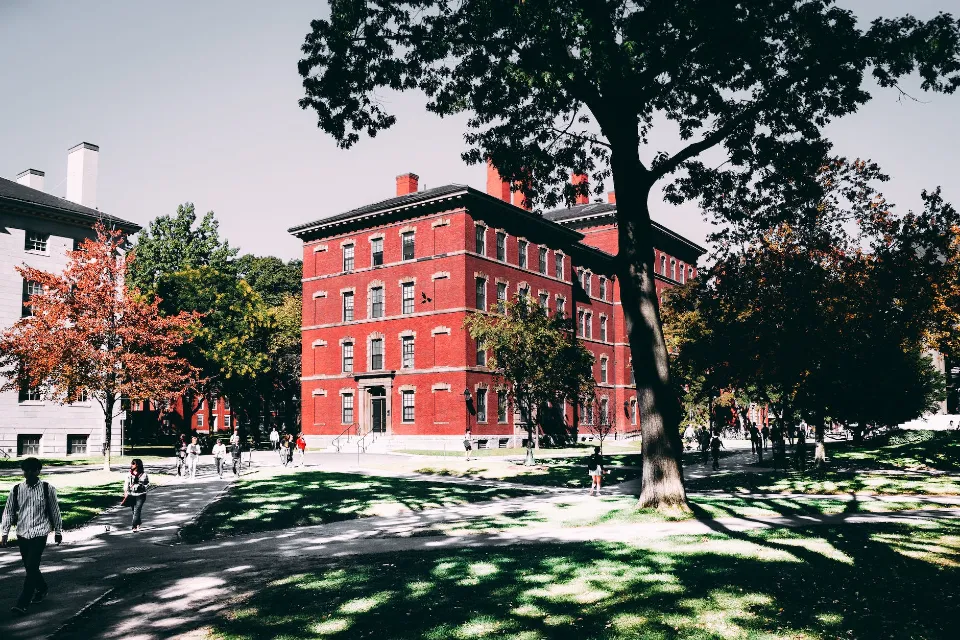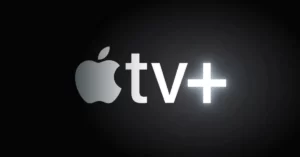
Can You Apply To College As A Junior? How?
If you’re interested in applying to college as a high school junior, then this post is for you.
The path to college for the majority of students entails four years of high school, a high school diploma, and a college acceptance received sometime during the 12th grade, but this isn’t the case for everyone. You might wonder what this process entails if you’re considering applying to college as a junior in high school.
If you’re a junior in high school who want to apply to college, you are supposed to focus on your academic performance first. You can find out more about applying to colleges by reading this article.
Can You Apply To College As A High School Junior?
You may wonder if you are even permitted to submit a college application during your junior year of high school. Two perspectives are available for this.
You must first take your high school into consideration. Even though they can never actually stop you from applying to college, your high school may occasionally be more helpful than others.
You will eventually need to ask your high school for support if you plan to apply to college as an 11th grader. This frequently manifests itself, at the very least, in the form of counsel from your guidance counselor and endorsements from your teachers. If they don’t believe you’re making the right decision, it will be more challenging for you to apply to college without their support.
Your letters of recommendation, for instance, might not be as strong as they would be if you waited until your senior year. Can your high school prevent you from submitting a junior-year college application? No, but if they disagree with your choice, they can undoubtedly make things more difficult.
Most colleges will accept applications from high school juniors, but there typically isn’t a specific path to doing so; as a result, you’ll be held to the same requirements and application process as everyone else.

A high school diploma, GED, or other document demonstrating successful completion of high school requirements may be needed at some colleges. Additionally, some universities mandate a specific number of core courses, such as four years of English.
If you’re a junior in high school considering applying to college, do your homework to make sure you meet all of the requirements for applying to the colleges you’re most interested in.
Read More:
- What is the Hardest Grade in High School?
- Pros and Cons of Honors Classes in High School
- What is Easier to Get, GED Or a High School Diploma?
- How to Get Good Grades in High School?
Since this is a less common path, you will need to do more research to make sure you qualify for each college before applying.
Pros of Applying for College as a Junior
- Potential to get into college earlier and begin planning for the future
- Leave high school one year in advance
Of course, these pros are only relevant if you get accepted. There is no guarantee, and regrettably, the disadvantages of applying as a junior mainly relate to elements that might have a negative impact on the effectiveness and success of your college applications.
Cons of Applying for College as a Junior
- Potentially miss out on traditional senior years activities, such as prom and graduation
- Less time to apply for scholarships and plan for college expenses
- Challenging to keep up with all the academic demands that come with being a junior and trying to apply for college at the same time
- Fewer opportunities to improve scores on standardized tests, such as the SAT and ACT
- Potentially less support from your guidance counselor and teachers since you’re skipping out on the traditional college application timeline
- College admissions officers will compare your applications to those of senior applicants with more experience because they are likely to have more complete and well-rounded transcripts, more leadership experience in their extracurricular activities, stronger teacher recommendations, etc.

The most significant disadvantage for you to think about is possibly that last one. Now that we know how applying as a junior can harm your college applications, let’s look at some specific examples.
How To Kick Off The College Admissions Process As A Junior?
Follow the steps and you can apply to the college as a junior:
Focus On Academics
Your junior year should be focused primarily on your academics. Your junior year classes are some of the most significant ones on your transcript, and some colleges may only look at your junior spring grades before deciding whether to admit you.
Don’t be disheartened if you received a lower grade in a few of your freshman or sophomore year classes. Colleges also look for a rising trend in your GPA in addition to strong academic performance.
When attending college information sessions or reading about admissions, you will often hear the phrase “strength of schedule.” In essence, this indicates that your evaluation is being conducted in part within the framework of your school.
You will be expected to take advantage of the chance to challenge yourself if your school offers a lot of AP or IB classes. On the other hand, if your high school does not offer advanced courses, you will not be penalized for having fewer of them on your transcript.

Build Your Extracurricular Profile
- Fall
Growing your extracurricular resume is ideal during your junior year. Extracurricular activities range from volunteer work and summer jobs to family commitments and student government. Colleges are interested in how you spend your free time, even though extracurriculars cannot replace excellent grades.
Strengthening your activities and honors list requires consistency. When reviewing your list, colleges will take note of whether you have been actively involved in a particular activity since your freshman year or have only recently begun to do so.
As a result, it’s best to think about your involvement and, if necessary, change how you spend your time in the early fall of your junior year.
Colleges will look at all of your extracurricular activities to determine if your interests have a common thread. While some of your extracurriculars may not seem to have much in common with your other activities or your intended major, feel free to include them.
Maybe you should join a club unrelated to the volunteer work you did the summer before. Maybe you choose to spend a few hours each week working at a restaurant.
A great time to start or continue demonstrating growth in your extracurricular involvement is in the fall of your junior year. Although there aren’t many official leadership positions available in high school, there are lots of opportunities to lead in less formal ways.
You can be a team player on a sports team, lead an initiative in a club, plan a community service project for your class, or be a leader in the classroom.
- Spring
Make plans for your upcoming summer during the spring of your junior year. The summer before your senior year is the best time to work a job to save money for college, shadow an adult in a career that interests you, or explore a potential career field during an unpaid internship. Additionally, I advise researching colleges over the summer.
If you can, visit campuses in person, but also make use of online tools like tours, webinars, and informational sessions. Ask current college students about their experiences and majors to learn more.

Meet Your Guidance Counselor
Set up a meeting with your guidance counselor in Your guidance counselor, who you may not have met yet, is a crucial component in ensuring that your applications are submitted successfully and on time in January or February.
She will inform you of the procedures and deadlines for submitting application materials at your high school, assist you in researching and selecting the right colleges, and possibly even advise you on who and when to request teacher recommendation letters.
Additionally, bear in mind that your guidance counselor is typically tasked with composing a letter of recommendation for you to submit to the college.
All the components of your college application will arrive on time if you keep the lines of communication open with your guidance counselor.
College List
An extensive amount of time and introspection is needed to create a college list. The first step in choosing the best schools for you is to define the criteria you’ll use to find them.
You’ll need to research schools and visit campuses. Make plans for how and when you’ll visit colleges, schedule appointments in advance with the admission office, and whenever it’s not feasible to visit campuses in person, supplement those in-person visits with online research.
Plan Testing Schedule
Whether you opt to take the SAT, ACT, SAT subject tests, APs, or all of the aforementioned exams, you must register in advance and prepare rigorously for them.
In order to finish standardized testing before the end of their junior year, the majority of students will sit for their first exam between January and March and then again between April and June.
Tests can be taken in the fall if that plan doesn’t pan out. October or November tests can still reach colleges in time for the majority of early applications.
When applying to colleges, the majority of them require potential students to submit their test results. That implies that you must take the SAT or ACT. All high school juniors in North Carolina are given a free ACT test to take in class.

If you perform poorly on that test, you might want to take a free practice SAT test online to determine which format you prefer. You can take both the ACT and SAT as many times as you’d like each year, but you must register and pay for each test, which can get pricey.
Fee waivers for the ACT and SAT are available to students who qualify for free or reduced lunch. For more information, speak to your school counselor. Planning ahead is the best way to achieve your desired ACT or SAT scores.
Maintain Current Grades
Keep track of all due dates for significant assignments and exams in your classes, as well as significant extracurricular activities, in order to finish your junior year with the best possible profile.
Numerous of these may conflict with the deadlines for your standardized tests, college visits, essays, and other application requirements.
When applications start to pile up, you don’t want your four years of grades and extracurricular activities to get the short end of the stick, so make sure you schedule a time to honor your commitments.
Plan For The Summer
In addition to being a great time to independently explore academic interests or research potential future college majors, the summer is also the perfect time to start working on your college essay and applications!
This is your last chance to impress colleges you’re interested in before you start putting your application together. Colleges want students who will make the most of their summers.
Recommendation Letters

You should approach teachers for letters of recommendation near the end of your junior year or at the start of your senior year. If you intend to apply to schools through the Early Action or Early Decision programs, these letters should ideally come from your junior-year teachers.
Focus on developing relationships with your teachers throughout your junior year; colleges want to read letters from teachers who know you the best, not just the teacher whose class you got a good grade in.
The advice given above is based on the typical application timeline, so don’t worry if your schedule differs slightly, especially if it involves standardized testing. Of course, the application process for college is different for each student and their family.
Whether you are in the middle of your junior year or looking ahead to next year, know that it is a crucial time for your academics and extracurriculars as well as an important time to learn about colleges and your own interests.
How Do Colleges Evaluate Your Application If You Apply In 11th-Grader?
When you apply to colleges, most do not take your grade level into account. As a result, creating an application that is competitive enough to stand out from those of students a year older than you is frequently the most difficult aspect of applying to college in your 11th grade.
Despite your intelligence, it will be difficult for you to amass the depth of experience necessary to compete with someone who has had a year more of experience.
The admissions committees will compare your extracurricular activities, academic successes, and honors in addition to your grades. You will need to be able to compete with the best applications from 12th graders all over the country if you want to apply to selective colleges.
Of course, this does not imply that a junior in high school cannot enroll in college. Simply put, it means you might be limited in your choices or forced to be more selective in the colleges you apply to.
You may decide to enroll in a smaller or less selective college first, then think about transferring once you’ve established your academic credentials in a college setting if you’re concerned that your application won’t measure up but you’re eager to start taking college-level courses or working toward a career.

How to Plan for Standardized Testing When You Want to Apply to College in 11th Grade?
Standardized testing is another logistics that you’ll need to carefully manage. You’ll need to start SAT or ACT preparation as soon as possible because you’re applying on a hurried timeline. In fact, you’ll need to be prepared academically a year earlier than if you applied to high school as a 12th grader.
In a perfect world, your testing would just be postponed by a year. This means that rather than the spring of your eleventh-grade year, you would take your first exams during the spring of your tenth-grade year.
If you need to retake the exam (which the majority of students do), you will have time to study over the summer and take it once more in the 11th grade in the fall.
How Important Is A High School Junior’s Year?
The most crucial year for your college application is your junior year because it is the last full year of high school that colleges will see. To give colleges an idea of your ability to handle that amount of work, it should most closely resemble a course load from a four-year university.
Read More: Things To Do After High School
Final Words: Try to Apply Now!
The college application process has many nuances, but you must first master the major ones before moving on to the more subtle steps that will increase your chances of being accepted.
While applying to college in your 11th grade is difficult, it can also be a rewarding challenge that will help you advance in your career, take on more difficult coursework, and graduate from high school earlier.
FAQs
What is the Youngest Age You Can Apply for College?
In the US, colleges accept students who are at least 17 years of age. There are, as usual, some exceptions to the rule. Homeschooled and accelerated students are also accepted, though they are uncommon.
Can You Apply to Harvard as a Junior?
Students may apply to enter as a sophomore (2nd year) or junior (3rd year) students. The spring semester is a closed admissions period at Harvard College. All transfer applications each year are due by March 1st to enter the fall term of the same calendar year.
What Can a College Reject You For?
Here are seven common reasons why college applications get rejected, according to some experts:
- unsatisfactory test results or a low GPA.
- lack of academic rigor.
- lack of expressed interest.
- error in the application essay.
- Poor fit.
- concerns about academic integrity.
- Competition.


